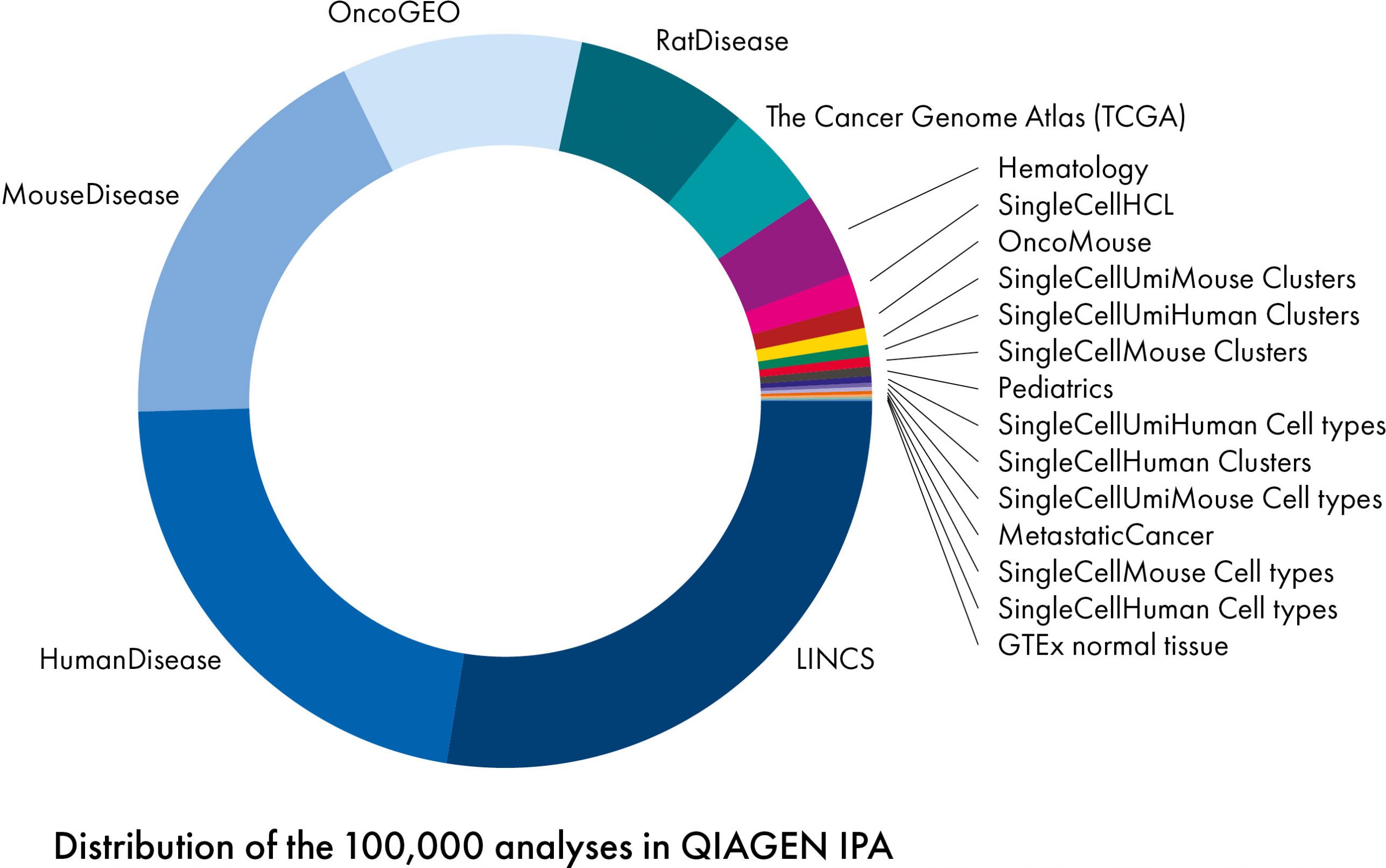


















Basic pathway analysis has several limitations that can slow down research progress and hinder insights from biological data. One of those limitations includes the inability to compare and contrast your experimental data to public data. Such a capability helps you better understand pathogenesis, disease and biological processes, find key targets or biomarkers and help reaffirm your results. Analyzing how your dataset compares to other similar datasets provides reassurance and evidence that your hypotheses and conclusions are on the right track and lets you make unexpected connections to other research areas.
Analysis Match from QIAGEN Ingenuity Pathway Analysis (IPA) was built to help you compare and contrast your biological data to re-curated public data from GEO, ArrayExpress, SRA, TCGA and many more sources, so you can more quickly and accurately strengthen hypotheses and discover new biological insights. Analysis Match automatically identifies curated datasets with significant similarities and differences to your results, enabling you to compare results, validate interpretation and better understand causal connections between diseases, genes, and networks of upstream regulators.
One hundred thousand analyses are now available in Analysis Match!
Analysis Match now lets you instantly scan your analyses against over 100,000 curated publicly available datasets and any of your own previous experiments you wish to include. Strengthen hypotheses and discover new biological insights by combining an enormous compendium of knowledge from the literature with a massive collection of gene expression measurements. Analysis Match debuted with just over 6000 datasets four years ago and has rapidly expanded to more than 100,000 today, covering vastly more research areas than ever before, including a large representation of single-cell clusters from human and mouse.
You might be tempted to curate datasets yourself, but this dataset collection represents over 460,000 samples analyzed with RNA-seq and microarrays and required over 30 person-years and more than 100 CPU-years to create. An extensive and unbiased data collection for comparison enables serendipitous discovery of closely matching or even “anti-matching” datasets that inform your research.
What's more, IPA provides other ways of looking at this massive data collection. For example, it enables you to answer questions like “under what conditions is the Coronavirus Pathogenesis Pathway inhibited?”, enabling in silico research that leverages the enormous amount of initial work done by other scientists to generate the data.
Don’t miss a research breakthrough. Discover why advanced pathway analysis tools such as Analysis Match are something your research can’t do without.
Sound like something you’d be interested in? Learn more about QIAGEN IPA Analysis Match and request a trial today.